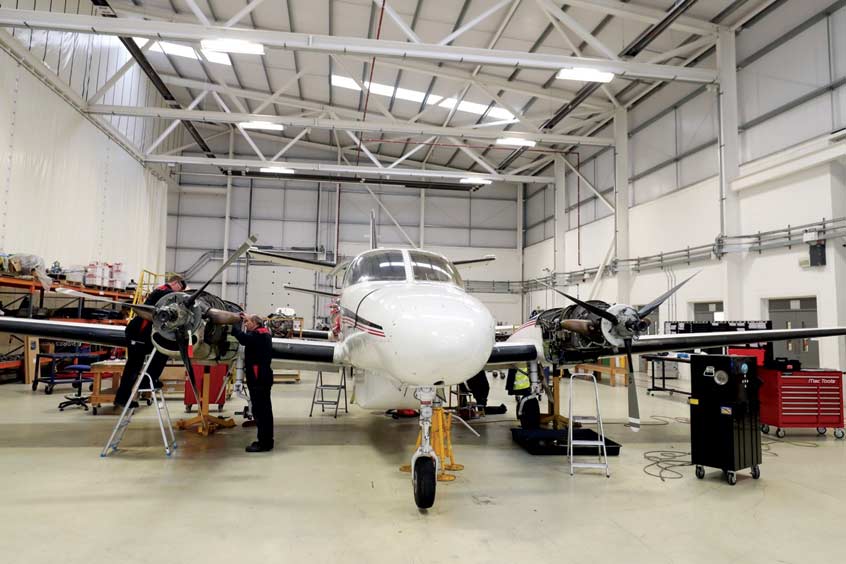ACE 2026 - The home of global charter.
 The bimonthly news publication for aviation professionals.
The bimonthly news publication for aviation professionals.

East Midlands airport, UK-based RVL Group says the challenges presented by COVID-19 have been particularly testing, not least because its many customers depend on RVL's ability to keep their people and air freight moving on time and on budget.
Now that cautious first steps are being taken on the path to business normality, the company is reflecting on a job well done and the positive lessons learned during the crisis.
RVL's engineering department, headed by Dean Simpkins, was at the forefront of maintaining operational normality during the darker days of the pandemic. “Unlike some airlines, RVL was never going to close down,” he says. “We have customers who rely on us to provide them with a service, and it was our job in engineering to ensure that aircraft would be available for scheduled activity. Every customer is important to us, and we do whatever it takes so that we never let them down. This includes our government agency customers, healthcare sector customers and all those who are in the commercial sector.
“The first thing that we had to organise was a shift pattern that could maintain the required level of service, so we split our 12 aircraft engineers into three teams, each working four days on and eight days off. This 12-day rotating shift pattern gave us the flexibility we needed so that, should a team member fall ill, we would have had two further teams, any one of which could step in if needed while their colleagues were isolating.”
Thankfully there were no problems involving COVID-19 for any of the engineering staff. The department was able not only to meet its regular targets but also to take on further work that previously had been contracted out to other companies. “That helped us meet operational requirements as well as providing financial benefits for the company,” adds Simpkins.
“Though the health of our staff was fortunately never an issue, there were of course challenges to be worked through. Lead times on aircraft parts from the USA were sometimes extended, and of course many of our suppliers' staff were, like us, working from home on occasions, which could give rise to difficulties.
“However, there was never a moment when I felt RVL's service delivery dropped as a result of the pandemic, which is a credit to everyone here. We have even taken some positives from the upheaval. For example, many of our engineering people have developed and grown both their abilities and their confidence, and feel more empowered in their roles.
“Now that we are moving towards a level of normality, we are taking things cautiously, recognising the risks and adapting accordingly so that RVL Group remains on a solid and secure footing, ready to react.”